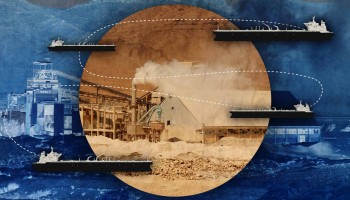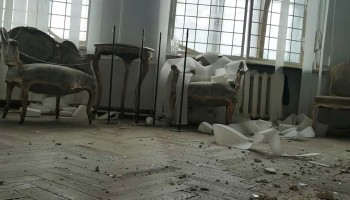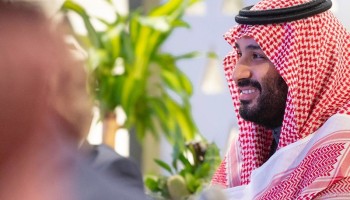The UK’s Electoral Commission has confirmed to OCCRP that it invited the Russian Federation’s Central Election Commission (CEC) to take part in its International Visitors Program, alongside 60 other countries.
“At this stage CEC Russia has indicated it would like to take part,” said a spokeswoman. Observers will visit polling stations and monitor vote counts.
It is common for international delegations to observe elections, both in the UK and elsewhere. Russia’s embassy in the UK has said Russia is neutral on the EU membership matter, calling it “none of our business.”
To assess that neutrality, reporters for OCCRP examined the actions of the Russian delegation that observed the Scottish independence vote, which Russian President Vladimir Putin had also claimed was “not a matter for Russia.”
Reporters found that the Russian election observers were far from objective, and that Russia had provided a Scottish independence group with legal assistance. Meanwhile, a number of trolls attacked the fairness of the elections, showing how an event as sensitive as a referendum can be seized on in the ongoing contest between Russia and the West.
Impartial monitoring
Portrait of a troll
Internet trolls normally operate in the shadows, posting inflammatory and often false material behind the mask of anonymity or fake identities.
Reporters from OCCRP were able to track down and interview one troll active in the vote for Scottish independence and its highly charged aftermath.
Along the convoluted trail, they uncovered a number of bogus claims and outright lies.
Scotland’s 2014 referendum for independence was the vote of a lifetime, as citizens weighed whether to split from a Westminster administration with which it had been sporadically at odds for centuries.
Unlike the general election turnout of about 65 percent, 85 percent of the electorate voted on Sept. 18, 2014.
The referendum was a huge and complex logistical operation, costing nearly £ 16 million (US$ 26.2 million). The stakes were high; thousands would watch the count to ensure no foul play, including hundreds of international observers and other interested people who registered via the Electoral Commission’s accreditation scheme.
Among them were a team of four led by Igor Borisov, the head of the Russian Public Institute of Electoral Law (ROIIP) – an organization based in Moscow, whose website states that its law-expert founders work to “promote democracy, the rule of law, and human rights.”
Although ROIPP is a non-governmental organization (NGO), it has received several contracts from the Russian state.
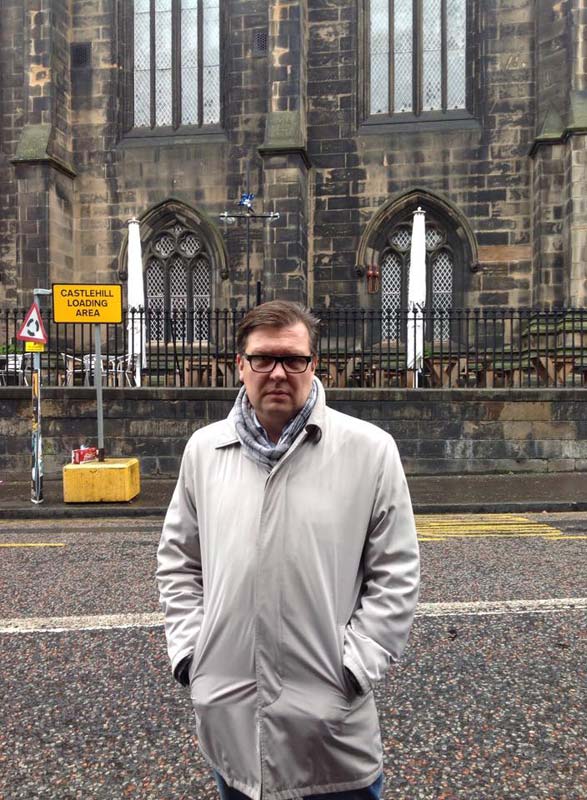 Dmitry Martynov, one of the electoral observers who travelled with the Russian delegation from ROIIP to Edinburgh. (Photo: Facebook) The day before the vote, delegation member Alexey Martynov, who heads a Moscow body called The International Institute of Newly Established States, was casting a critical eye on proceedings.
Dmitry Martynov, one of the electoral observers who travelled with the Russian delegation from ROIIP to Edinburgh. (Photo: Facebook) The day before the vote, delegation member Alexey Martynov, who heads a Moscow body called The International Institute of Newly Established States, was casting a critical eye on proceedings.
He mused on Facebook: “Interesting that almost 750,000 people registered to vote in advance by postal vote. That is nearly 17 percent. Who was it who was screaming about too big an advance vote at last Sunday’s elections in Russia?”
The Electoral Commission’s code of conduct requires observers to maintain “strict political impartiality at all times.” In another comment on Facebook, also posted before the counting was finished, Martynov declared: “It’s clear they will cheat.”
Vitaliy Kovin of Golos, an independent Russian electoral rights group that also attended the vote as observers, said the ROIIP delegation behaved strangely during the vote count.
Kovin said he did not see the ROIIP team at the Electoral Commission’s guidance event for electoral observers, but did spot them talking in the hangar where the Edinburgh count took place.
He told OCCRP that, since the count was organized very differently from proceedings in Russia, it was natural that international observers should ask for some things to be explained.
“But,” Kovin added, “[the ROIIP delegation’s] conversations were very skeptical and critical. ‘What is this mess, this chaos? These people are running about, some people are bringing something. Other people are sitting behind tables – who are they?’”
An influential verdict
The question voters were deciding was, “Should Scotland be an independent country?” The final tally was 55 percent NO, 45 percent YES. The disappointment of YES voters was palpable. Crowing unionists in Glasgow clashed violently in the streets with anguished nationalists.
It was a moment in which the people of Scotland were vulnerable, says independence campaigner Douglas Daniel, who was present at the vote count and wrote about it for the political website Wings Over Scotland.
At the time, he says, he knew nothing about the ROIIP team.
“It wasn't until the articles speaking about ‘Russia’ and saying the process was flawed [appeared] that I became aware of their existence,” says Daniel.
Sure enough, by the end of the day after the vote, the ROIIP delegation’s damning verdict was all over the British and Russian press.
The vote in Scotland “[did] not conform to generally accepted international principles of referendums,” said Borisov, the delegation’s head.
He claimed it was “impossible to see what is going on at [polling tables]”. Worse, ballot boxes were “lying around… without any protection.”
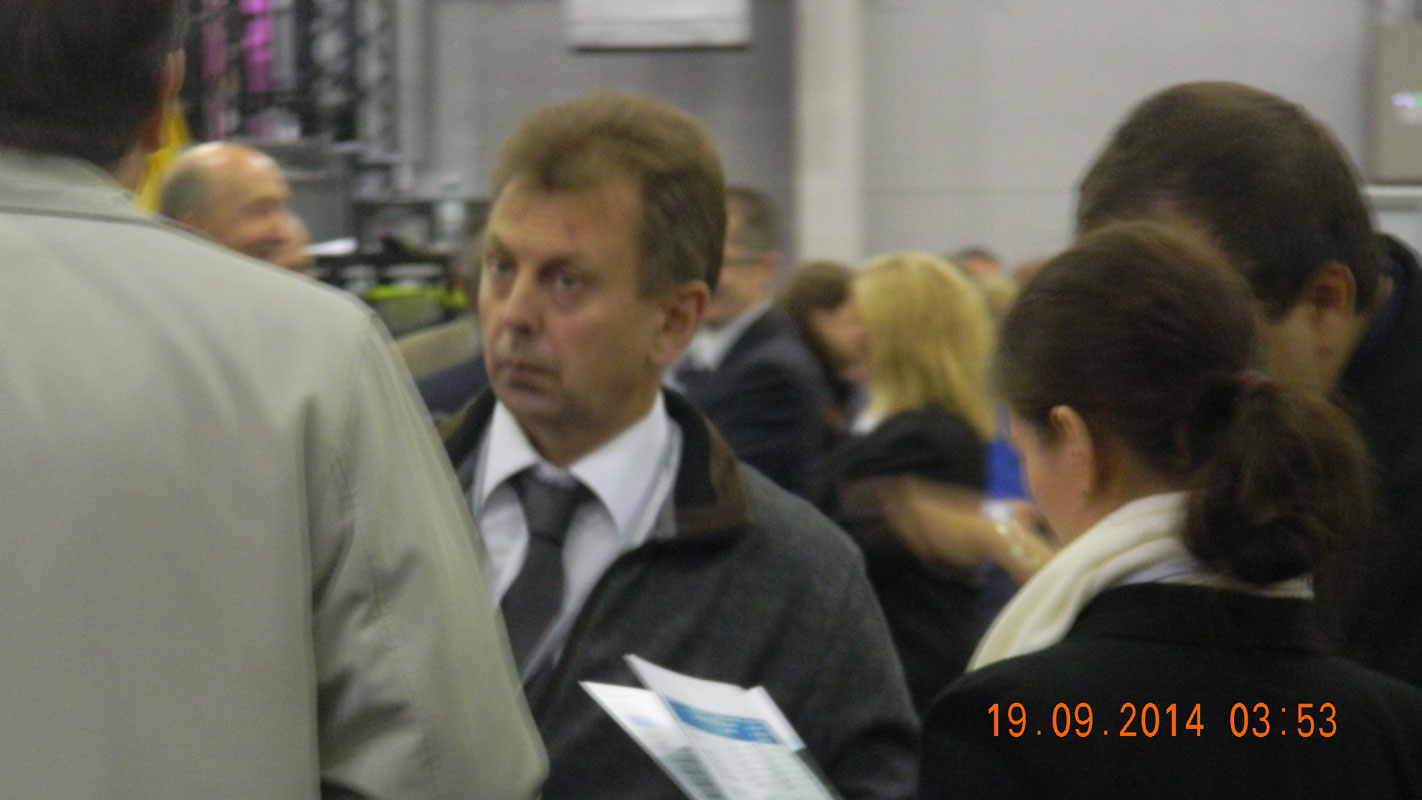 Igor Borisov flanked by his colleagues in the hangar in Edinburgh where the final count took place. (Photo by: Vitaly Kovin) All or part of Borisov’s comments appeared in Newsweek, the Daily Mail and the Guardian. The latter article was shared 55,000 times and attracted more than 2,500 comments. Journalist Luke Harding, who wrote the article, tweeted to say it had been viewed more than 790,000 times in two days. “Wow,” he wrote.
Igor Borisov flanked by his colleagues in the hangar in Edinburgh where the final count took place. (Photo by: Vitaly Kovin) All or part of Borisov’s comments appeared in Newsweek, the Daily Mail and the Guardian. The latter article was shared 55,000 times and attracted more than 2,500 comments. Journalist Luke Harding, who wrote the article, tweeted to say it had been viewed more than 790,000 times in two days. “Wow,” he wrote.
In the days following the vote, the stories were linked to in online forums and social media while YES campaigners took to Change.org to demand a recount, a whole new referendum, and even a declaration of Scottish independence.
In addition to the ROIIP comments, activists complained of ballot papers that lacked serial numbers and claimed postal votes had been tampered with.
Borisov’s comments were the first post made on the Facebook page of the group “Rally for a Revote,” which was linked to a petition that collected more than 100,000 signatures.
But the Russian delegation’s view was at odds with those of other observers.
Adrian Browarczyk, who led a monitoring team from the European Students Forum, told OCCRP, “We assessed this referendum as fair and free of fraud… No one from my team reported anything that would be in line with Borisov’s accusations.”
Browarczyk, who also observed elections in 2014 in Ukraine and Moldova, said the Russian claims did not surprise him.
“I believe Borisov intentionally criticized the proceedings from the counting [station],” he said, adding: “It is an obvious way Kremlin-backed bodies behave in order to undermine the values that Europe cherishes.”
As fraud theories circulated on social media, the UK Electoral Commission issued a response. It said no wrongdoing had been pointed out by observers during the count; indeed, Police Scotland received only 13 complaints of fraud, none of which supported Borisov’s claims.
However, a raft of fraud theories has continued to hold sway with a small but vocal minority.
Says Douglas Daniel of Wings Over Scotland, “Even after various people who were actually at the counts trying to explain to people that there was no stitch-up, there are still people to this day who insist that the YES side actually won.”
A checkered past
It’s not hard to win accreditation as an observer by the Electoral Commission. The code of conduct says nominees should not be “guilty of an electoral offence anywhere in the world in the five years previous to the date of application.”
There is no suggestion that the ROIIP delegation violated this rule. However, OCCRP found that Borisov has an unorthodox background and approach to elections.
Borisov, a lawyer, rose to prominence in 2000 during Putin’s first presidential election. Then-deputy head of ROIIP, he dealt with complaints of fraud in the west Russian region of Saratov.
Borisov successfully argued that the observers’ complaint reports were filed incorrectly and their claims were subsequently regarded as a “fabrication” by Russian prosecutors.
In 2002, he successfully defended the current deputy chair of the Russian government, Aleksandr Khloponin, against fraud allegations during his campaign for governor of the Siberian region of Krasnoyarsk.
The same year, Borisov was sent from Moscow to help fight off a court case into alleged violations of electoral law by multimillionaire businessman Kirsan Ilyumzhinov during his bid for president of Russia’s Kalmykia Republic.
Ilyumzhinov won, and went on to make headlines last year when he resigned from his post as head of the world chess body Fide over alleged links to Syrian dictator Bashar Al Assad.
Borisov’s efforts did not go unnoticed. He was personally selected by Putin to join the CEC in 2007.
In 2008, Borisov defended Chechen President Ramzan Kadyrov, who’d been criticized over an election turnout of more than 100 percent.
“I can assume,” said Borisov, “that the president of Chechnya was referring to a situation where the list of voters increases for one reason or another after the election.”
In 2014, Borisov insisted that entire families of Crimean Tatars voted during the controversial referendum for Crimean independence (when many boycotted it).
His comment was widely reported in Russian media, helping to legitimize the vote and undermine the dissent of many Crimean Tatars, whose Mejlis (along with the United Nations, Venice Commission and other international bodies) had declared the referendum illegal.
The wider goal
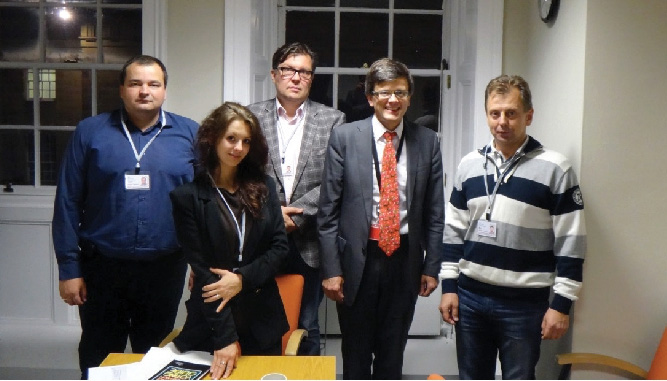 Delegates in Edinburgh wearing their observer lanyards. (source) Theories abound on why Russia might want to declare a UK referendum a fraud.
Delegates in Edinburgh wearing their observer lanyards. (source) Theories abound on why Russia might want to declare a UK referendum a fraud.
Orysia Lutsevych, who runs Chatham House’s Ukraine forum for its Russia and Eurasia program, believes that in 2014, “They were trying to justify the referendum in Crimea.” She thinks “their wider strategy is to do whatever works to undermine the cohesion of the European Union.”
And today, the question of Scottish independence is far from dead, according to pro-independence activists with large Facebook followings who still post regularly on the topic.
One activist who does not want to be named because he fears reprisal founded a Facebook group called “UDI Scottish Independence.” He is a longtime YES campaigner from Dundee.
UDI stands for unilateral declaration of independence, an acronym used by those who hope to see Scotland a sovereign state.
For 18 months the anonymous activist has dedicated websites across Facebook, Myspace and Google+ pages to compiling evidence of fraud and collecting signatories to the UDI cause. Graffiti tags and stickers around Dundee reflect these themes.
The UDI Movement’s evidence mentions the Russian observers’ comments, but also offers videos, personal testimonies, and technical arguments for Scotland’s sovereignty.
The activist estimates the campaign has attracted about 30,000 supporters across all platforms. But other YES campaigners see UDI as a fringe group; the political website Wings Over Scotland calls it “utter madness.”
The campaign apparently drew little attention until the activist was approached by a Russian NGO called the Anti Globalization Movement (AGM).
The AGM invited the UDI activist to a conference last September in Moscow, to join delegations from Catalonia, Sinn Fein, and a US black power group, Uhuru, as well as pro-Russian separatists from Donetsk in eastern Ukraine.
According to media reports, the event was funded by a 2-million-ruble grant (about US$ 30,235 at today’s exchange rate) by the Kremlin-linked National Charitable Fund.
As it turned out, nobody from the UDI campaign could attend. But AGM still invited them to sign a petition to the UN on behalf of a number of wannabe-independent states. For this, they gave the Scots access to a lawyer. They also invited the UDI activist to a future event.
“Out of all the international bodies and countries and news agents, only the AGM offered us a platform and the use of an international lawyer,” said the activist.
The AGM has helped the UDI group to spread the word. Staff member Anastasia Promskaya posted one of their petitions to her page on the Russian social media site VKontakte, urging English-speaking friends to sign.
Stop Imperialism is AGM’s English-language news website, featuring headlines supporting militant separatists in Donetsk and Crimea. It hosts several articles by Promskaya promoting solidarity with the Scottish secession movement, including another link to the UDI petition.
Lutsevych of Chatham House, who has studied the role of NGOs in furthering Russian foreign policy, said, “They are trying to mobilize any disenchantment and fringe organizations in countries where there is an independence agenda, or an anti-American agenda.”
The UDI activist agrees the AGM has its own agenda. Asked why he thought the Russian NGO offered him help when nobody else would, his reply was simple.
“Because they’re anti-British,” he said.
Taking inspiration
Lutsevych says trolls and the internet are key to Russian efforts to drum up anti-Western sentiment. “Cyber and the digital arena is a big area of focus for them,” she said.
OCCRP reviewed online activity to see what impact propaganda might have had on public trust in the Scottish referendum. The ROIIP delegation was not alone in claiming that the referendum was rigged.
In the UK Electoral Commission’s post-mortem report, published in December 2014, it noted a high level of complaints resulting from images of the counting process being “understandably misunderstood” by the public.
“The rise of social media has amplified the damage that an allegation based on a lack of understanding of electoral process can cause, as the initial accusation is often seen by hundreds, or even thousands, of people, whereas the subsequent explanation rarely receives the same attention,” the report said.
Indeed, several videos were widely circulated on social media immediately after the vote, showing what appeared to be conspiratorial scenes in counting centers.
In one video, a vote counter appeared to place ballots marked YES in a pile marked NO; another clip showed a fire alarm going off in the Dundee counting station, theoretically allowing an opportunity for interference.
These sparked hundreds of online comments and tweets, as well as petitions lodged with Change.org and the government’s own petitions website. The claims of malfeasance have since been debunked by commentators and official responses.
The next big UK poll
Did ROIIP’s observers violate the UK’s Electoral Commission’s code of conduct?
A spokeswoman’s written response did not give a direct yes or no, saying, “Our processes are open to domestic and international observation and observers may express differing views. This is the natural consequence of a transparent electoral system open to full scrutiny.”
An International Visitors Program has been developed for the EU referendum. It includes briefing sessions on the context for the vote, as well as “information on observation.” It is this scheme that Russia’s CEC hopes to attend.
Chatham House’s Lutsevych expects another harsh assessment, despite the fact the Crimean independence issue is now lower-key. “What they are looking for is to find any violations so they can talk about double standards,” she said.
The Russian state feels threatened by democracy, she says, so it seeks to criticize democratic processes abroad to justify its own abuses.
“They will probably use these talking heads for their own media at home. They will try to find scandals, because that’s how Russian media works.”




